|
On This Date (October 28) in 1961, Raymond Jones ordered the single 'My Bonnie' from Brian Epstein, thus setting in motion events that would ultimately lead to Epstein's management of The Beatles. The single's B-side, 'The Saints', would influence Paul McCartney's writing of 'I Saw Her Standing There' two years later. October's tour concludes tomorrow afternoon with my 30th speaking engagement of the month.
Saturday, 29 October 2016, 1:00-2:30 p.m. Monessen Public Library, 326 Donner Ave, Monessen, PA The Influence of American Rock 'n' Roll on The Beatles Before the Beatles ever wrote their own songs or performed on stage, they were inspired to do so by American rock 'n' roll records. This 90-minute multimedia program will illustrate the influence of Carl Perkins, Elvis Presley, Chuck Berry, Little Richard, and other American recording artists from the 1950's on the Beatles through side-by-side comparisons and musical analysis of Beatles covers and original recordings.
0 Comments
At the start of every tour, I feel well-rested and eager. With levels of energy and enthusiasm high at the beginning of these trips, that is when I'm most likely to write the most in-depth blogs. But at some point the grueling pace wears me down and those energy and enthusiasm levels drop noticeably.
I have the presentation skills and self-discipline to ensure that my programs remain at top-notch quality even as those level dip, but my blog certainly shows this progression. Towards the end of any given tour, my blogs typically get shorter and feature less depth. And this current tour is no exception to that trend. My best blogs from this trip came early:
But lately, as fatigue has taken its toll, my blogging has been noticeably shorter and less analytic. I will often write blogs several days in advance. But now I've run out of pre-written posts because the past few days I've spent my free time watching the Aliens vs. Predator series! And that's what I need - something that doesn't require much mental exertion - but it means I have nothing to write about this morning other than promoting tomorrow's gigs: Thursday, 27 October 2016, 11:00 a.m. - noon Seabury, 200 Seabury Dr., Bloomfield, CT From the Shadow of JFK: The Rise of Beatlemania in America Many Beatles authors have cited John F. Kennedy's assassination on 22 November 1963 as a cause of the Beatles' sudden popularity in the United States in early 1964. Their logic: Kennedy's assassination made America sad, then the Beatles made America happy again. But this commonly accepted answer is overly simplistic. The real answer is that Kennedy's life and death inadvertently primed the nation for the Beatles' arrival and success. This 60-minute multimedia program will explain how and why. NOTE: Seabury is a private institution and so this event is not open to the public. Thursday, 27 October 2016, 7:00-8:00 p.m. Farmington Main Library, 6 Monteith Drive, Farmington, CT The Beatles & The Rolling Stones Ask anybody to name two English rock bands from the 1960s and the response will likely be The Beatles and The Rolling Stones. But despite often being portrayed as rivals in the media, the two groups were actually quite friendly towards each other, both socially and musically. This 60-minute presentation will compare and contrast the two through musical examples and interviews with the band members to illustrate the relationship between The Beatles & The Rolling Stones. One of the principles of harmony is the notion of tension vs. relaxation. The Beatles knew this well and often used it effectively, such as in 'Please Please Me' (1963). The ascending vocals (shown in red) contribute to the rising tension. The Rolling Stones used this technique, too. On '(I Can't Get No) Satisfaction', Mick Jagger's sings progressively higher, building more and more tension. Both examples (and particularly The Beatles' example) are likely inspired by The Everly Brothers, who used the same ploy in recordings several years before The Beatles or The Stones. A good example, as pointed out to me by a fellow who attended my presentation at the Newton Free Library last week, can be found in 'This Little Girl of Mine' (1958). And since The Everlys' 'This Little Girl of Mine' is a cover of Ray Charles' 1955 original, we can in turn trace this tension-building technique back to him. Furthermore, the lyrical repetition in each of these passages ("Come on, come on...", "I try and I try...", "Why, why...", "I, I...") highlights the building harmony. Since there are no new lyrics to distract a listener, emphasis is instead placed on the growing tension to be climaxed in each song's subsequent phrase. Of course, the notion of harmonic tension goes back long before Ray Charles, too - back to the origin of functional harmony many centuries ago. It's a technique as old as tonal music itself, but revamped in a mid-20th century pop context. At 43.9° north and 69.6° west, my presentation in Boothbay Harbor, Maine last Saturday was both the most northernly and most easternly position of this tour. And now I begin working my way a little bit south and a lotta bit west as the trip starts to wind down and takes me back to central Indiana.
Wednesday, 26 October 2016, 7:00-8:00 p.m. Southwick Public Library, 95 Feeding Hills Rd, Southwick, MA The Beatles: Band of the Sixties Explore the music of The Beatles in this 60-minute multimedia presentation (part history and part musical analysis) spanning the full 1960's: beginning with the band's seminal visits to Hamburg, continuing through Beatlemania, and concluding with Abbey Road. The program will be supplemented with audio clips of music and excerpts from interviews with the band members. John Lennon's songwriting often began with lyrics and later added music to those lyrics. As a result, Lennon melodies are often compact and use few different notes. Paul McCartney, by contrast, usually started with a melody, then found lyrics to fit that melody. That lead to sweeping, wide-ranging melodies that often span an octave or more. But in 'Baby You're a Rich Man', those characteristics are reversed: Lennon's verse melody spans a minor 7th (just shy of an octave, but wider than normal for his tunes)... ... while McCartney's chorus melody is monotone until the last two syllables ("man, too"), spanning a total of a minor third (a significantly smaller interval than most of his tunes). It would thus be a completely logical and understandable mistake to think that PAUL had written the verses and JOHN the chorus. Paul's melodicism also surfaces in 'With A Little Help From My Friends', as detailed in the BEATLES MINUTE below. After one day in Rhode Island, I return to neighboring Massachusetts tomorrow:
Tuesday, 25 October 2016, 6:30-730 p.m. Westfield Athenaeum, 6 Elm St, Westfield, MA From the Shadow of JFK: The Rise of Beatlemania in America Many Beatles authors have cited John F. Kennedy's assassination on 22 November 1963 as a cause of the Beatles' sudden popularity in the United States in early 1964. Their logic: Kennedy's assassination made America sad, then the Beatles made America happy again. But this commonly accepted answer is overly simplistic. The real answer is that Kennedy's life and death inadvertently primed the nation for the Beatles' arrival and success. This 60-minute program will explain how and why. Last October, one of my biggest crowds came at the Tiverton, Rhode Island library. I return to Tiverton tomorrow to deliver one of my favorite program topics, a comparison of The Beatles and The Rolling Stones: Monday, 24 October 2016, 6:30-7:30 p.m. Tiverton Public Library, 34 Roosevelt Rd, Tiverton, RI The Beatles & The Rolling Stones Ask anybody to name two English rock bands from the 1960s and the response will likely be The Beatles and The Rolling Stones. This 60-minute presentation will compare and contrast the two through musical examples and interviews with the band members. As a preview, here's my BEATLES MINUTE on the topic: The second track from Mind Games that stood out was 'Out Of The Blue'. The opening guitar work is reminiscent of 'Julia' from The White Album. Character: Both are intimate in both musical and lyrical character, and both are written about Yoko ('Julia' being an Oedipal blend of love for his mother, Julia Lennon, and his burgeoning love in Yoko). Tempo: Given the intimate and emotional character, a slow tempo is appropriate for both tracks. 'Julia' clocks in at 68 beats per minute; 'Blue' at a slightly faster 72 bpm. Finger picking patterns: The third measure of 'Blue' uses the same finger picking pattern used throughout 'Julia'. (And 'Dear Prudence', too, for that matter.) It's the technique Donovan taught Lennon in India in 1968. Finally, 'Blue' employs homophones - two different words that are pronounced identically. John regularly used homophones in Beatles music:
The final week of October's New England tour begins tomorrow.
Sunday, 23 October 2016, 2:00-3:00 p.m. Milton Public Library, 476 Canton Ave, Milton, MA From the Shadow of JFK: The Rise of Beatlemania in America Many Beatles authors have cited John F. Kennedy's assassination on 22 November 1963 as a cause of the Beatles' sudden popularity in the United States in early 1964. Their logic: Kennedy's assassination made America sad, then the Beatles made America happy again. But this commonly accepted answer is overly simplistic. The real answer is that Kennedy's life and death inadvertently primed the nation for the Beatles' arrival and success. This 60-minute program will explain how and why. In addition to listening to John Lennon's 1972 album Some Time in New York City, the other day I listened to his 1973 album Mind Games. Two tracks in particular struck me as being strongly related to Beatles tracks. The first was 'I Know (I Know)', whose opening is remarkably similar to 'I've Got A Feeling'. Instrumentation similarities: Both are lead guitar riffs. Harmonic similarities: Both are in the key of A major and alternate every two beats between A and D chords. Rhythmic similarities: The pattern of 8th and 16th notes are very nearly identical. Melodic similarities: The melodic contour is similar, though 'I Know' is more compact (spanning just a major tenth) whereas 'Feeling' spans two octaves. Is it coincidence that McCartney, famously more melodic than Lennon, wrote 'Feeling', where John wrote 'I Know'? It's possible that Lennon wrote 'I Know' without realizing how similar it was to 'Feeling', but that seems highly unlikely. While his memory for dates and details is often inaccurate, his musical memory was quite strong. Further suggesting a Beatles parallel is the line at about 2:30: "it's getting better all the time" is strongly related to the lyrics from the Beatles track 'Getting Better'. And so, assuming that Lennon is consciously referencing 'Feeling', the question becomes: Why? While I'm quite familiar with The Beatles' output, I know the band's solo works far less intimately. So I pose the question to readers who might be more familiar with John's solo work: What is 'I Know (I Know)' about? Who is he singing to? Are there multiple individuals? And how does referencing 'I've Got A Feeling' and 'Getting Better' enhance 'I Know'? I will address the second comparison from Mind Games tomorrow. In the meantime, I'm eager to hear reader responses to this comparison. My fourth and final (and third consecutive) double-booking is tomorrow:
Saturday, 22 October 2016, 2:00-3:30 p.m. Thomas Memorial Library, 6 Scott Dyer Rd, Cape Elizabeth, ME The Influence of American Rock 'n' Roll on The Beatles Before the Beatles ever wrote their own songs or performed on stage, they were inspired to do so by American rock 'n' roll records. This 90-minute multimedia program will illustrate the influence of Carl Perkins, Elvis Presley, Chuck Berry, Little Richard, and other American recording artists from the 1950's on the Beatles through side-by-side comparisons and musical analysis of Beatles covers and original recordings. Saturday, 22 October 2016, 7:00-8:00 p.m. Thomas Memorial Library, 6 Scott Dyer Rd, Cape Elizabeth, ME The Beatles: Band of the Sixties Explore the music of The Beatles in this 60-minute multimedia presentation (part history and part musical analysis) spanning the full 1960's: beginning with the band's seminal visits to Hamburg, continuing through Beatlemania, and concluding with Abbey Road. The program will be supplemented with audio clips of music and excerpts from interviews with the band members. Today, being the 20th day of the month, is the day I send out my newsletter. Inspired by popular interest, I began this free monthly email newsletter in March 2014, when I sent that initial issue to 6 people. Little by little, it's grown to the point where this morning's newsletter (November 2016) was sent to 880 recipients. Each newsletter details my schedule for the remainder of the current month through the end of the next month - which presentation I'm giving, where, and when. Here is this month's newsletter in PDF form:
Anybody with a valid email address may register for the newsletter on my website: http://www.aaronkrerowicz.com/newsletter-sign-up.html. Just be sure to type the “prove you are human” part. (I get a lot of spam, so any submissions that skip that step are deleted.) Newsletter subscription is the best way to stay in touch. The emails are sent from my personal Gmail account, which allows recipients to respond easily and efficiently. This permits me to maintain a monthly dialog with Beatles fans across the globe. Plus, they feature adorable puppy pictures. In honor of my pooch, Abbey (as in Road), I started including a photo of her in each newsletter beginning in 2016. Here's November's: Those who don't sign up online may do so in person following any of my speaking engagements, including tomorrow's:
Friday, 21 October 2016, noon - 1:00 p.m. Boothbay Harbor Memorial Library, 4 Oak St, Boothbay Harbor, ME The Beatles: Band of the Sixties Explore the music of The Beatles in this 60-minute multimedia presentation (part history and part musical analysis) spanning the full 1960's: beginning with the band's seminal visits to Hamburg, continuing through Beatlemania, and concluding with Abbey Road. The program will be supplemented with audio clips of music and excerpts from interviews with the band members. Friday, 21 October 2016, 7:00-8:00 p.m. D. A. Hurd Library, 41 High St, North Berwick, ME The Music of Star Wars: A Celebration of John Williams' Film Scores Often called a “space opera”, one aspect of the Star Wars films that helped make them such a pop culture phenomenon was composer John Williams' ultra-romantic orchestral score. This 60-minute multimedia presentation will showcase the music of all seven movies, citing historical precedents and comparing musical influences with the twofold purpose of (1) illustrating how the music developed, and (2) enlightening listening and furthering enjoyment of the music. On 10 February 1964, the day after The Beatles' debut on The Ed Sullivan Show, Leroy Aarons wrote an article titled "The Beatles Prove Fairly Tame Chaps" reviewing the performance in The Washington Post: "They behaved in a more civilized manner than most of our own rock and roll heroes. There were no Presleyan gyrations, no leering, no grimacing, no screeching. Except for the outrageous bathmat coiffures, the four young men seemed downright conservative. In matter of fact, the Beatles are rather asexual . . . homely . . . Their faces are fixed in vacant, almost angelic expressions when they sing and their most provocative maneuver is a slight shaking of the head and a smile . . . The songs, while very much in the teen age genre, were restrained in comparison with the jungle calls popular here." It's an article that has been quoted frequently in a variety of contexts (including on p. 473 of Bob Spitz's admittedly factually challenged The Beatles: The Biography and on this Washington Post website). There's only one problem... While researching for From the Shadow of JFK: The Rise of Beatlemania in America last year, I probably scoured a few miles of microfilm of The New York Times and The Washington Post (including every page of The Post between 8-25 February 1964) in search of Kennedy- and Beatles-related articles. I found a great many, of course, but I never did find Aarons'. I assumed I had just missed it - that it was there, but my bleary eyes simply failed me - so on 27 May 2015 I contacted The Post directly, asking for assistance in finding the article. A Post employee promptly replied confirming that he could find no trace of the article, either. My bleary eyes hadn't failed me, after all! My attempt to contact Aarons' estate directly, however, did fail. My email to the address provided on their website bounced, which forced me to at least temporarily conclude that the article is unreliable. Because I could not substantiate it, I had to remove Aarons' quotes from my book. Then the other day, while driving through Connecticut, I stopped at Wesleyan University, where I conducted much of my microfilm research. I knew they had the complete Washington Post, so since I was in town anyway and had the extra time, I made one final search. I found two Beatles references in the 10 February 1964 Post... The first, on page B6, is a caption for three photos of Ringo starr. The second, on page B20, is an ad for the album Meet The Beatles (just $2.77!). ... but I did NOT find the Aarons article. It is possible that the microfilm was incomplete, though that seems highly unlikely. The microfilm I searched had 24 pages of A section, and an equal number of B section pages. I suppose there could have been additional pages of either section, or a C section that was somehow omitted from the microfilm, but that seems like an even greater stretch - especially since other weekdays also had only A and B section. In any case, given the evidence, I am convinced that Leroy Aarons' "asexual" article DID NOT appear in the 10 February 1964 Washington Post. To be clear, none of this means the article is necessarily fabricated, nor does it mean that the ideas are inaccurate (even if it is fabricated). Example: There is a quote floating around the internet (and of course if it's on the internet it must be true!) attributed to John Lennon about why The Beatles fired Pete Best and hired Ringo Starr instead: "Pete was good drummer; Ringo was a good Beatle." But that quote is manufactured - John Lennon never said that. Nevertheless, there is a degree of truth behind those counterfeit words: Ringo played the role of Beatle better than Pete did. So even though the quote is contrived, its meaning is still accurate. And the same applies for Aarons' comments. They might or might not be fabricated, but either way it has no influence on the validity of the ideas, whether you agree with his assessments or not. Where October 11-29 will be the busiest 19-day stretch of my career so far (23 speaking engagements in 19 days), tomorrow through Saturday will be the busiest 3-day stretch (6 speaking engagements - 2 per day for each of those 3 days).
Thursday, 20 October 2016, 2:30-3:30 p.m. Wilmington Memorial Library, 175 Middlesex Ave, Wilmington, MA The Beatles: Band of the Sixties Explore the music of The Beatles in this 60-minute multimedia presentation (part history and part musical analysis) spanning the full 1960's: beginning with the band's seminal visits to Hamburg, continuing through Beatlemania, and concluding with Abbey Road. The program will be supplemented with audio clips of music and excerpts from interviews with the band members. Thursday, 20 October 2016, 7:00-8:00 p.m. Peabody Institute Library, 15 Sylvan St, Danvers, MA The Beatles: Band of the Sixties Explore the music of The Beatles in this 60-minute multimedia presentation (part history and part musical analysis) spanning the full 1960's: beginning with the band's seminal visits to Hamburg, continuing through Beatlemania, and concluding with Abbey Road. The program will be supplemented with audio clips of music and excerpts from interviews with the band members. Over the past few years, with so many Beatles-related speaking engagements, I've amassed a substantial collection of Beatles neckties. Some of my favorites are Sgt. Pepper (a gift from my dad), a collage of their album covers, and the band members' faces. A guy stopped me at Abbey Road on the River last May to ask if he could buy that last tie from me. I declined. I even have a Beatles tie clip to complete the ensemble. (I love eBay!) But I also speak on several other topics, and so have plenty of non-Beatles neckwear for such occasions. For my Star Wars presentation last Saturday, I wore a Star Wars tie. And during yesterday's Shadow Ball: A History of Negro League Baseball, I of course wore a baseball tie. And tomorrow I time warp to a decade earlier than usual - not to the 1960s, but to the 1950s - to present The History of Rock 'n' Roll, a topic I've spoken on many times (though nowhere near as frequently as The Beatles). But for a long time, I didn't have any good rock 'n' roll ties. I'd been keeping an eye out for an Elvis one, but for some reason Presley ties seem to be way more expensive than Beatles ties. Then, on 16 June 2016 at the Allen County Public Library in Fort Wayne, Indiana, a woman in attendance generously gave me this one: I've been waiting for an appropriate opportunity to debut it since June. And I get my first chance tomorrow evening:
Wednesday, 19 October 2016, 7:00-8:00 p.m. Wellesley Free Library, 530 Washington St, Wellesley MA The History of Rock 'n' Roll This 60-minute program will trace the development of Rock 'n' Roll (as distinct from Rock of the 1960s) from its roots in the blues and country music, through its pinnacle in the mid 1950s, and its abrupt decline in the late 50s. Artists discussed will include Buddy Holly, Little Richard, Chuck Berry, and Elvis Presley, among others. |
Beatles BlogThis blog is a workshop for developing my analyses of The Beatles' music. Categories
All
Archives
May 2019
|
||||||
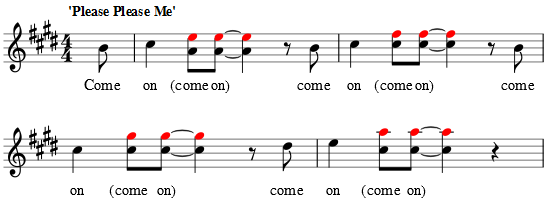

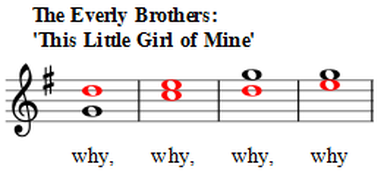


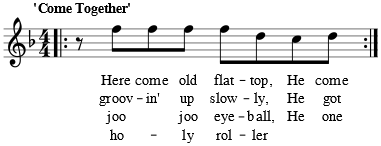






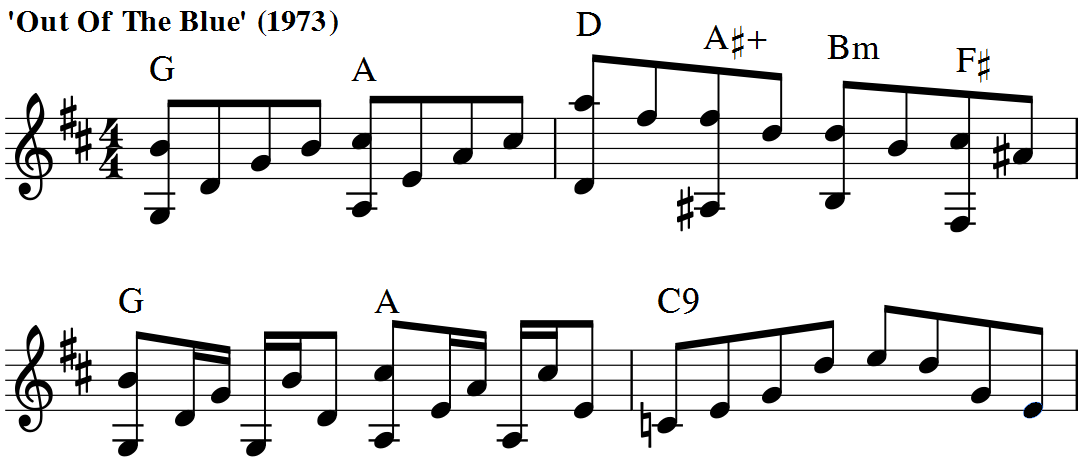




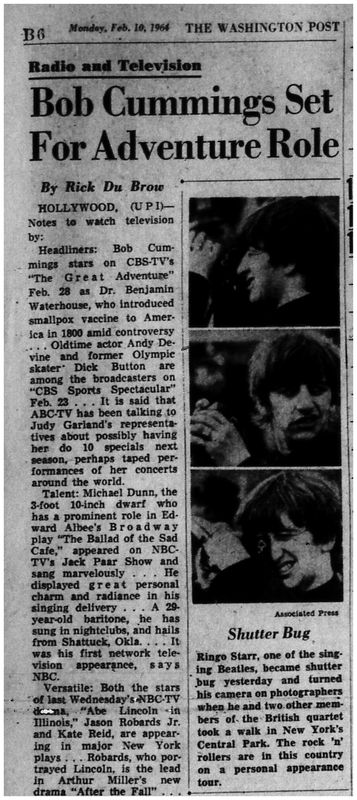
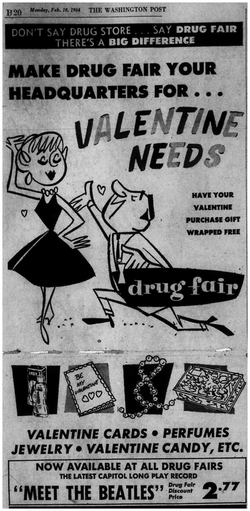







 RSS Feed
RSS Feed
